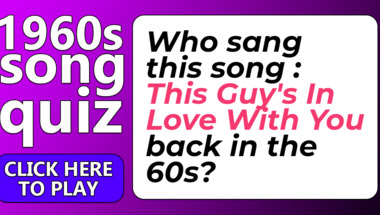
70s Music Quiz
Difficulty : Medium Get 6/10 correct to pass the quiz
Question 1 of 10
Dionne Warwick had a hit with this song in 1971
Question 2 of 10
Who had the hit "My Eyes Adored You" in 1976?
Advertisement
Question 3 of 10
Tony Orlando and Dawn had a hit with this song in 1974
Question 4 of 10
Who had the hit "Honky Tonk Women" in 1970?
Question 5 of 10
Who had the hit "Let's Get It On" in 1974?
Question 6 of 10
Who had the hit "Theme from "Shaft"" in 1972?
Question 7 of 10
Dr. Hook and The Medicine Show had a hit with this song in 1973
Advertisement
Question 8 of 10
Who had the hit "50 Ways to Leave Your Lover" in 1977?
Question 9 of 10
Elton John had a hit with this song in 1975
Question 10 of 10
Kiss had a hit with this song in 1977
Advertisement

MORE QUIZZES
Trivia Quiz for smart people
10 mixed up questions in a range of categorie..
10 mixed up questions in a range of categorie..

10-Question Globe-Trotter Ch
How many questions will you ace in this 10-qu..
How many questions will you ace in this 10-qu..

10 mixed categories question
How smart are you really?
How smart are you really?
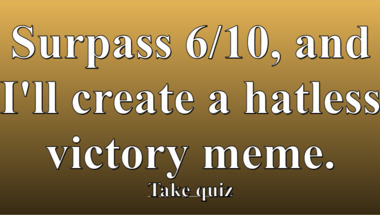
Mixed knowledge questions
10 questions in mixed categories
10 questions in mixed categories

Food & Cooking Quiz
10 mixed questions for you
10 mixed questions for you

General Trivia Quiz
10 mixed questions
10 mixed questions

1960s Song Quiz
Level : VERY HARD
Level : VERY HARD

History Quiz (Medium Difficu
Can you answer 7/10 of these questions?
Can you answer 7/10 of these questions?

General trivia quiz
10 mixed fun questions
10 mixed fun questions

Advertisement
Latin Words Quiz
Are you smart enough for this one?
Are you smart enough for this one?

General Trivia Quiz
10 mixed questions
10 mixed questions

Movie Quiz
10 movie questions
10 movie questions

General Knowledge For Trivia
How many correct will you get?
How many correct will you get?
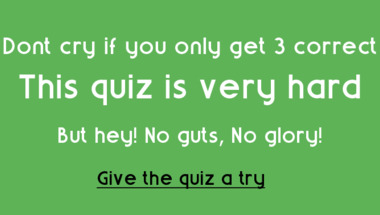
General Trivia Quiz
How smart are you really?
How smart are you really?

Super hard trivia quiz
Scoring 4/10 in the target
Scoring 4/10 in the target

General Trivia Quiz
10 mixed general trivia questions
10 mixed general trivia questions
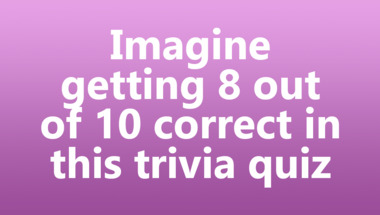
World History Quiz
10 questions to test your knowledge
10 questions to test your knowledge
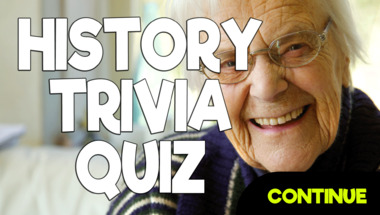
Music Quiz
10 questions
10 questions
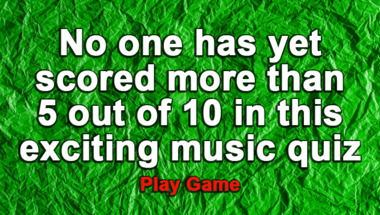
Advertisement
General trivia quiz (10 ques
Have fun!
Have fun!
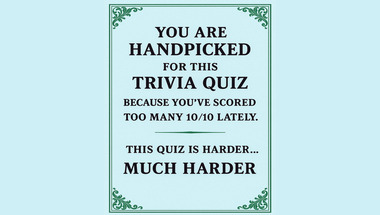
General Trivia Quiz
10 questions
10 questions
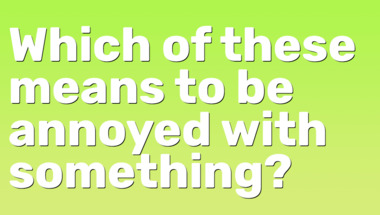
Trivia Quiz for humans and m
How high can you score?
How high can you score?
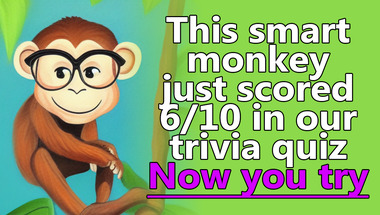
General Knowledge Quiz (10 q
Are you up for a quiz?
Are you up for a quiz?

10 general trivia questions
How many correct will you get?
How many correct will you get?

1960s Song Quiz
How many correct will you get?
How many correct will you get?

10 trivia questions
Knowledge Quiz
Knowledge Quiz
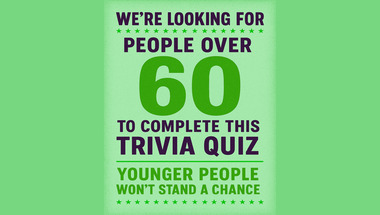
Food & Cooking Quiz
10 home chef questions
10 home chef questions

Which two movies is this?
Click here for solution and a movie quiz
Click here for solution and a movie quiz

Advertisement
General Trivia Quiz
10 questions to test your knowledge
10 questions to test your knowledge

1950s Hits: 10-Question Chal
How many tunes can you nail in this 10-questi..
How many tunes can you nail in this 10-questi..
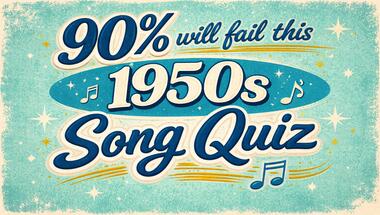
10-question fun fact challen
How many questions will you ace in this 10-qu..
How many questions will you ace in this 10-qu..
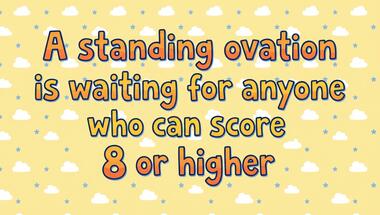
Quiz on history for the most
10 exciting history questions
10 exciting history questions

A geography quiz for knowled
You are probably going to fail most questions
You are probably going to fail most questions

General Trivia Quiz with 10
Can you score 7 or higher in this one?
Can you score 7 or higher in this one?

Grandmas cooking quiz
10 fun questions
10 fun questions

Trivia Smart Quiz
10 Smart Questions
10 Smart Questions
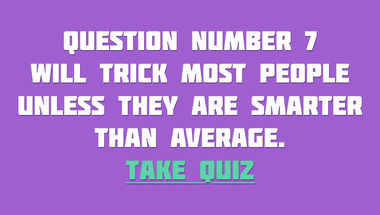
Quiz : Music in the 1960s
Did you live in this awesome decade?
Did you live in this awesome decade?
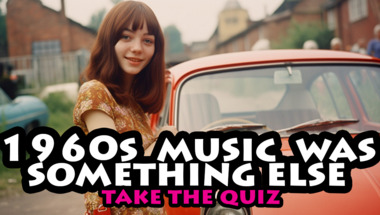
Advertisement
Are you smart enough for thi
10 mixed genereal questions
10 mixed genereal questions

Science Trivia Quiz
How smart are you really?
How smart are you really?
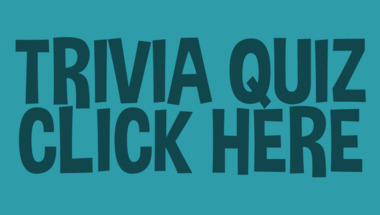
The big fool test
Are you a fool? :)
Are you a fool? :)

Quiz : We removed a word fro
How many of the words can you find?
How many of the words can you find?

1970s History Quiz
Let's see how much you really know!
Let's see how much you really know!

World Geography Quiz
10 hard questions to have fun with
10 hard questions to have fun with

World History Quiz
What do you remember?
What do you remember?

Hard trivia quiz
10 tricky questions
10 tricky questions

General Trivia Quiz
10 difficult questions
10 difficult questions

Advertisement
Impossible history quiz
Tell us your result in the comments
Tell us your result in the comments

General trivia quiz for peop
How will you do in this fun pop quiz?
How will you do in this fun pop quiz?

Blockbuster Brain Teaser: 10
How many movies will you nail in this 10-ques..
How many movies will you nail in this 10-ques..
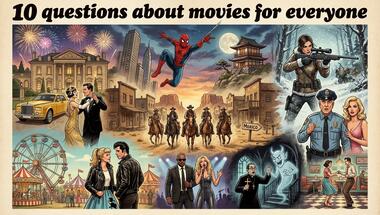
General trivia quiz for geni
10 hot questions
10 hot questions
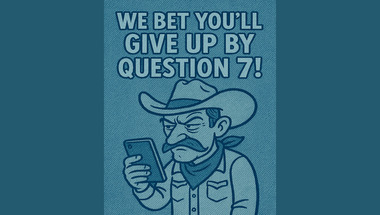
10-question mixed knowledge
How many right answers can you score in this ..
How many right answers can you score in this ..
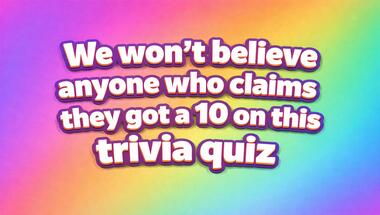
1970s Song Quiz
How many correct answers will you get?
How many correct answers will you get?

Princess Diana Quiz
Let's test your trivia skills!
Let's test your trivia skills!

Quiz about history.
Here are 10 entertaining inquiries.
Here are 10 entertaining inquiries.
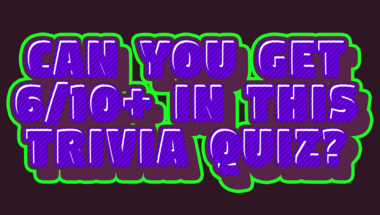
General Knowledge Quiz (10 q
10 mixed category questions
10 mixed category questions
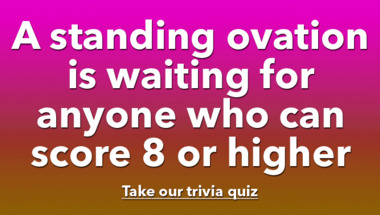
Advertisement
General trivia quiz that is
10 questions to assess your level of knowledg..
10 questions to assess your level of knowledg..

Quiz : Songs of 1976
How many of these songs do you remember?
How many of these songs do you remember?
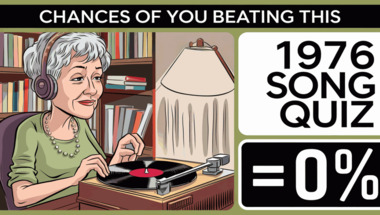
Quiz : We tell you the 1960s
10 bands to guess
10 bands to guess

Quiz on General Knowledge
10 questions of mixed variety
10 questions of mixed variety

General Trivia Quiz
Can you beat these 10 questions?
Can you beat these 10 questions?

Movie Quiz
10 mixed questions
10 mixed questions
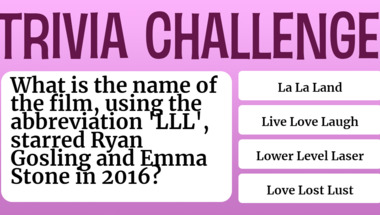
General Trivia IQ challenge
Is your IQ high enough for these questions?
Is your IQ high enough for these questions?

Only creative minds will fig
Is your mind creative?
Is your mind creative?
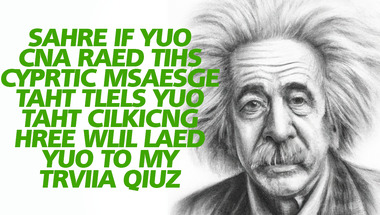
1960s Song Quiz
10 songs to guess
10 songs to guess
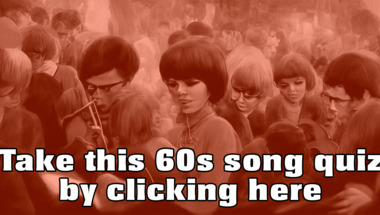
Advertisement
History Quiz
10 mixed questions
10 mixed questions
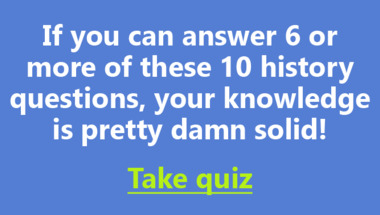
Trivia Quiz : What do you kn
10 mixed questions
10 mixed questions

General Trivia Quiz
How many correct will you get?
How many correct will you get?
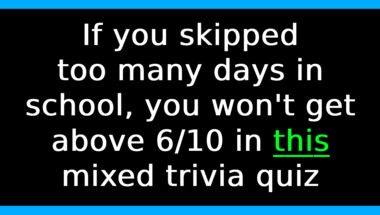
Song Lyrics Quiz
10 mixed songs to guess
10 mixed songs to guess
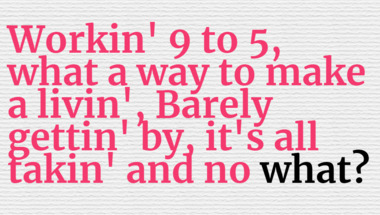
Back to school quiz
10 questions
10 questions

What do you know?
10 questions to test your knowledge
10 questions to test your knowledge

Trivia quiz. Scoring 8+ not
How many correct answers will you get?
How many correct answers will you get?

General Knowledge For Trivia
How many correct will you get?
How many correct will you get?

1970s Song Quiz
How many songs do you know?
How many songs do you know?
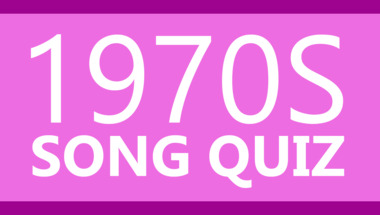
Advertisement
Quiz : Songs of the 1960s
How many correct will you get?
How many correct will you get?
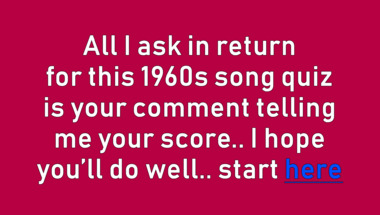
Pop-quiz
10 mixed questions
10 mixed questions
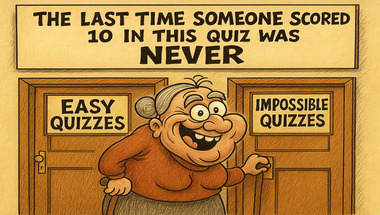
Quiz of general trivia
10 questions on a variety of topics
10 questions on a variety of topics

Quiz about relaxing songs fr
Can you recall this amazing era?
Can you recall this amazing era?
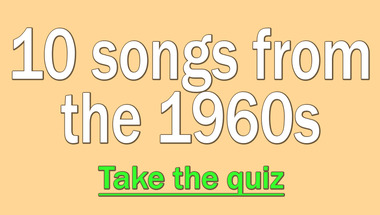
Gramma & words quiz for smar
How many of them will you answer correctly?
How many of them will you answer correctly?

Einstein Quiz
Can you score 7 or higher?
Can you score 7 or higher?

Quiz : Nostalgic Candy
10 questions to test your knowledge
10 questions to test your knowledge
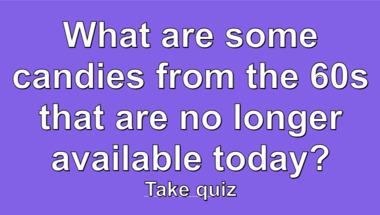
10-question general knowledg
How many questions will you ace in this 10-qu..
How many questions will you ace in this 10-qu..
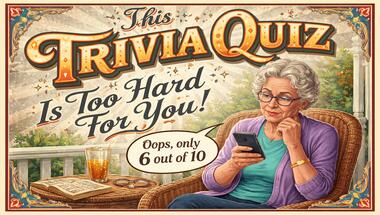
Spelling Quiz
How smart are you really?
How smart are you really?

Advertisement
Genius Level Trivia Test
How high does your knowledge go?
How high does your knowledge go?
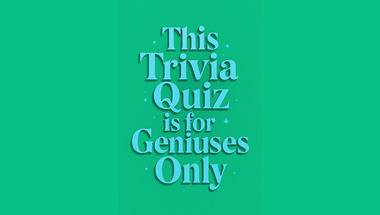
Trivia Quiz
Click here and see how smart you are! :)
Click here and see how smart you are! :)

What do you know about liter
10 questions to test your knowledge
10 questions to test your knowledge
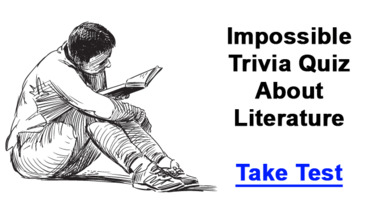
Questions about history
Here are 10 questions to assess your knowledg..
Here are 10 questions to assess your knowledg..
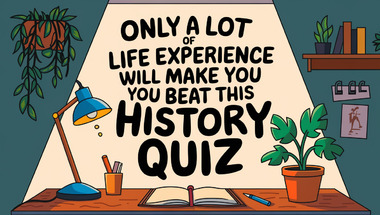
Geography Quiz
10 mixed questions
10 mixed questions

Big brain trivia quiz
10 brainy questions
10 brainy questions
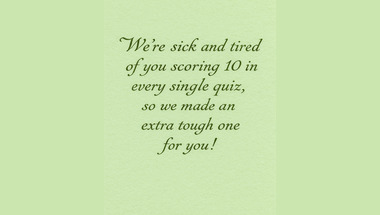
Quiz : We removed a word fro
Can you help us find the missing words?
Can you help us find the missing words?

World History Quiz
10 questions to test your knowledge
10 questions to test your knowledge

10 trivia questions of a gen
What is your score going to be?
What is your score going to be?

Advertisement
Test your knowledge with the
Share your score in this enjoyable mixed subj..
Share your score in this enjoyable mixed subj..

Science & Nature Quiz
10 Trivia Questions
10 Trivia Questions

Movie Quote Quiz
How many question can you answer correctly?
How many question can you answer correctly?

Trivia Quiz for everybody
Post your score in the comments!
Post your score in the comments!

10-question trivia challenge
How many right answers can you rack up?
How many right answers can you rack up?

Quite difficult 10 question
10 tricky questions
10 tricky questions

General Knowledge Quiz (10 q
Mixed category quiz
Mixed category quiz

Food & Cooking Quiz
10 questions
10 questions
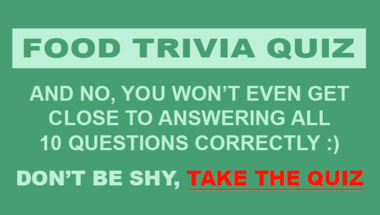
Explorers Trivia Quiz
What do you really know?
What do you really know?

Advertisement
Geography Quiz
10 mixed questions
10 mixed questions

Trivia Quiz for smart people
10 mixed up questions in a range of categorie..
10 mixed up questions in a range of categorie..

Quiz on Historical Events
10 questions about history.
10 questions about history.

Mixed knowledge questions
10 questions in mixed categories
10 questions in mixed categories

1960s Lyrics Quiz
10
10

Geography Quiz
10 mixed genereal questions
10 mixed genereal questions

Quiz on History
10 questions about history
10 questions about history

1960s Song Quiz
Can you name the artists?
Can you name the artists?
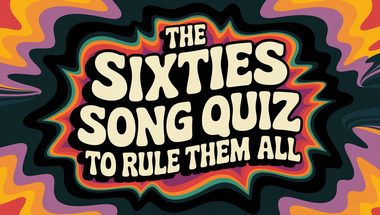
1960s Song Quiz
10 songs to guess
10 songs to guess
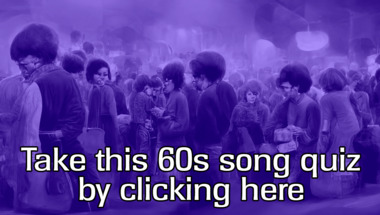
Advertisement
Groovy 60s Hits: 10-Question
How many can you nail in this 10-question mus..
How many can you nail in this 10-question mus..
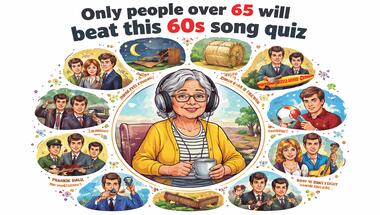
Science Quiz
How nerdy are you?
How nerdy are you?
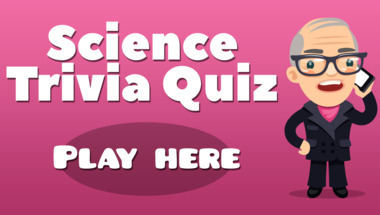
Quiz on General Trivia
Test your knowledge with 10 trivia questions
Test your knowledge with 10 trivia questions

Quiz : Lyrics of the seventi
How many of these songs do you remember?
How many of these songs do you remember?

Spelling test : true or fals
10 words to guess
10 words to guess

Click here to play
10 questions for you to answer
10 questions for you to answer

Quiz : Words and definitions
10 questions to test your knowledge
10 questions to test your knowledge

Trivia IQ test
Are you a knowledge genius?
Are you a knowledge genius?

General Knowledge Quiz
10 mixed questions
10 mixed questions

Advertisement
A quiz for everyone (Trivia)
Let me know your score in the comments
Let me know your score in the comments

General Knowledge For Trivia
Let's hear your result in the comments
Let's hear your result in the comments

1960s song quiz
10 songs to guess
10 songs to guess
